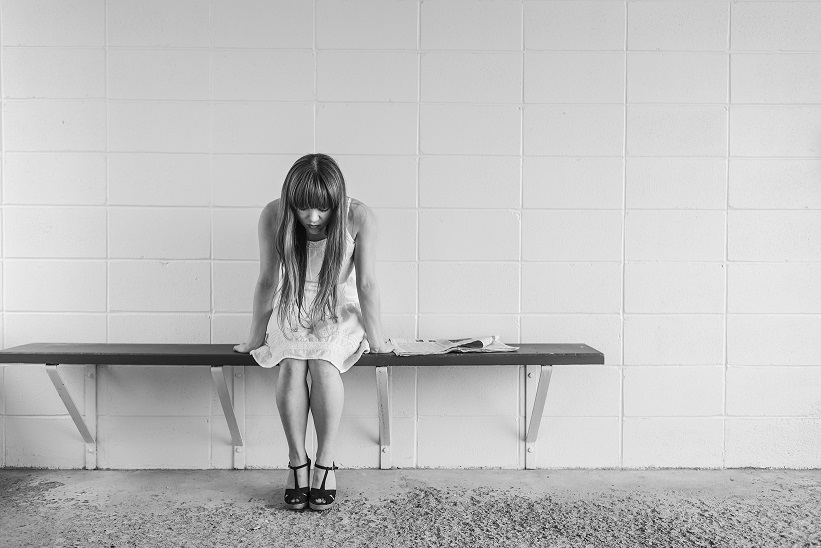Today’s western lifestyle sets us up for stress.
The concrete jungle that we live in, rising consumerism, keeping up with the jones’ mentality, the increase in processed foods and non-stop use of technology all affect how we live and how we feel.
Think how different life is for someone in a traditional community isolated from our modern rat race. Picture those who spend much of their day outdoors in nature, focused around providing shelter, warmth and food for themselves and their family. The rest of the time being spent on recreation, enjoyment of life and in deepening relationships with each other. For most of us that would feel like a holiday. This, one of my favourite stories explains this concept so well.
In the western world, few of our lives resemble anything like that and with too much time spent firing on all cylinders, our health is suffering.
So many people grind through their work week only to ‘live’ on weekends. ‘Living’ two days out of seven, is less than half of your life! Even for the minority like myself who LOVE their work, family and personal stress can still take their toll.
Perceived pressure (which is often self-imposed) negatively affects thousands of people and leads to chronic stress and a raft of health challenges.
We have so many labour saving devices and so much technology that we hardly have to move our bodies (which were designed to move). We are over-fed but under-nourished. We have soaring rates of obesity, the highest ever rates of depression and the saddest thing is that all of this is starting with young children and goes right through to the retired.
In the wake of the sad deaths of so many wonderful people, I have been thinking about how many of us deal with things such as stress and depression in silence.
One of the greatest challenges with stress is that it can be a bit like hypothermia. Often you don’t realise you’re suffering from it, until it’s too late.
So, today I want to share with you some tips on how to identify when you are stressed and some things you can do about it. Please, please share these with your loved ones and take a moment to consider if you notice any of the signs in them or in yourself. It’s a positive, healthy thing to do.
So how do you know you may be suffering from stress…
1. Often you don’t. I start with this point as it is so important to realise that it is very normal not to be aware that you are in fact stressed. This highlights the importance of being vigilant to look for early warning signs and to take preventative action in advance.

2. Anxiety. In particlar feeling anxious over small things that wouldn’t normally concern you.
3. Difficulty getting to sleep or staying asleep. Some people experience one or the other or both. A vicious cycle can start when one becomes increasingly stressed, first by the stressors and secondly by the lack of sleep which debilitates the body and causes more stress.
4. Tiredness and lethargy. This can relate to poor quality of sleep which can occur without one being aware. Stress impacts on the quality and depth of sleep we experience, negatively impacting on our ability to reach the deep restorative phases of sleep.
5. Difficulty finding humour or laughter in situations where you normally would.
6. Forgetfulness. An overloaded stressed brain that is trying to deal with too many facts, figures and things to remember loses its ability to file and retrieve information as it normally would.
7. Withdrawing. Stress can lead to a tendency to withdraw from social situations as they may seem overwhelming, particularly if they are in an unfamiliar environment or involving new people. This can lead to isolation which can lead to further stress.
8. Physical pain. Our bodies respond to how we feel, in particular our gut is very linked to our feelings (think butterflies in your stomach when nervous). Digestive disorders can be initiated by stress. Tension around the shoulders and neck can relate to a feeling of being overloaded, literally feeling a weight on your shoulders and unknowingly tensing upper back and neck muscles continues the cycle.
9. Low immunity. Ongoing stress that keeps the body in fight or flight mode for extended periods also shuts down what it sees as non-essential functions such as the immune system so that you are better able to run for your life and respond to what your body sees as immediate danger.
10. Low sex drive. Stress also decreases ones desire for intimacy which is unfortunate as sex within a stable loving relationship is a powerful stress reliever.
11. Poor concentration or ability to be creative. An overloaded brain finds it difficult to focus often leaving the person flicking from one task to another not finishing anything to completion, again never ending to do lists add to the stress.
12. Obsessive behaviours or perfectionism. Being overly concerned about little details being just so and trying to control situations can arise from an internal feeling of stress and a lack of control. Again this forms a negative cycle.
Most importantly, what can we do about stress?
Click on the link for my top sixteen strategies to manage stress.
____________________________________________________________________
Interested in my Overcome the Overwhelm 8-Module Coaching Programme?

Share this Post
